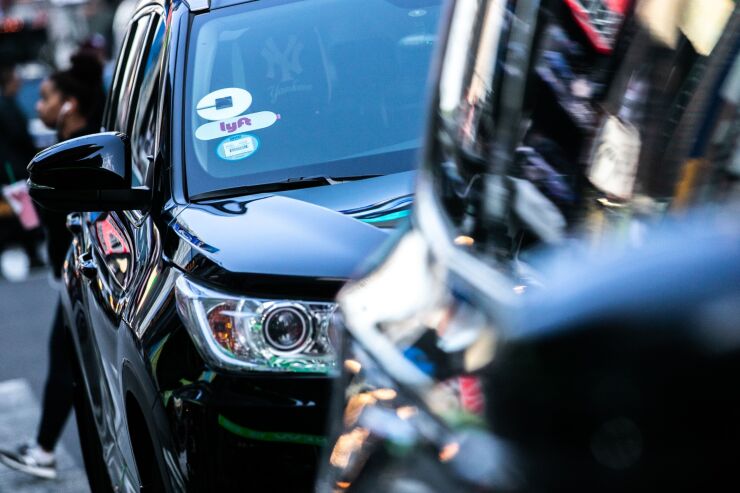Ride-hailing companies Uber Technologies Inc. and Lyft Inc. agreed to pay New York drivers a total of $328 million in back pay and carry out a series of labor reforms to resolve state investigations into their employment practices.

The companies agreed to offer paid sick leave, put in place a minimum "earnings floor" and improve hiring and earnings notices, among other changes, New York Attorney General Letitia James said Thursday in a statement. Under separate agreements, Uber will pay $290 million and Lyft will pay $38 million, all of which will go to more than 100,000 current and former New York drivers, James said.
"For years, Uber and Lyft systemically cheated their drivers out of hundreds of millions of dollars in pay and benefits while they worked long hours in challenging conditions," James said in a statement. "These drivers overwhelmingly come from immigrant communities and rely on these jobs to provide for their families."
The employment rights of so-called gig workers at companies like Uber and Lyft have long been a focus of regulators around the US. In California, companies scored a victory in March after a state appeals court
Tony West, Uber's chief legal officer, said in a statement that the settlement is a "landmark, first-of-its-kind agreement" that resolves the fight over driver classification in New York by giving drivers flexibility and benefits at the same time.
"This helps put to rest the classification issue in New York and moves us forward with a model that reflects the way people are increasingly choosing to work," he said.
Attorney General James says Uber from 2014 to 2017 improperly deducted sales tax and other fees from driver paychecks that should have been paid by passengers. According to the statement, Uber falsely told drivers that it would only deduct its commission from fares, and that drivers were permitted to charge passengers for any tolls, taxes or fees that were incurred during a ride.
In reality, James says, "no method to do this was ever provided via the Uber Driver app."
The attorney general said Lyft employed a "similar method to shortchange drivers" from 2015 to 2017 by deducting an 11.4% "administrative charge" from drivers' payments in New York that were equal to the sales tax and other fees that should have been paid by riders.
Under the agreements, Uber and Lyft will tell drivers after each ride how much was paid by the customer. They'll also provide chat support for drivers in multiple languages "so they can easily ask questions about their earnings or other work conditions," according to the statement.
The Uber accord also allows drivers to appeal decisions by the company to deactivate a driver's access to the app.
"This is a win for drivers, and one we are proud to have achieved with the New York Attorney General's Office," Jeremy Bird, Lyft's chief policy officer, said in a statement on the company's





